Letter recognition Writing Worksheets for Ages 5-9
5 filtered results
-
From - To
Discover our engaging Letter Recognition Writing Worksheets designed for children ages 5-9, perfect for enhancing their literacy skills! These worksheets offer interactive activities that promote letter identification and writing practice, helping young learners build a strong foundation in reading and writing. Each worksheet features colorful illustrations and various exercises that make learning fun and effective. From tracing letters to identifying them in different contexts, our resources cater to diverse learning styles. Encourage your child's confidence and proficiency in literacy with our comprehensive, easy-to-use worksheets that make letter recognition an enjoyable adventure! Start their educational journey today!
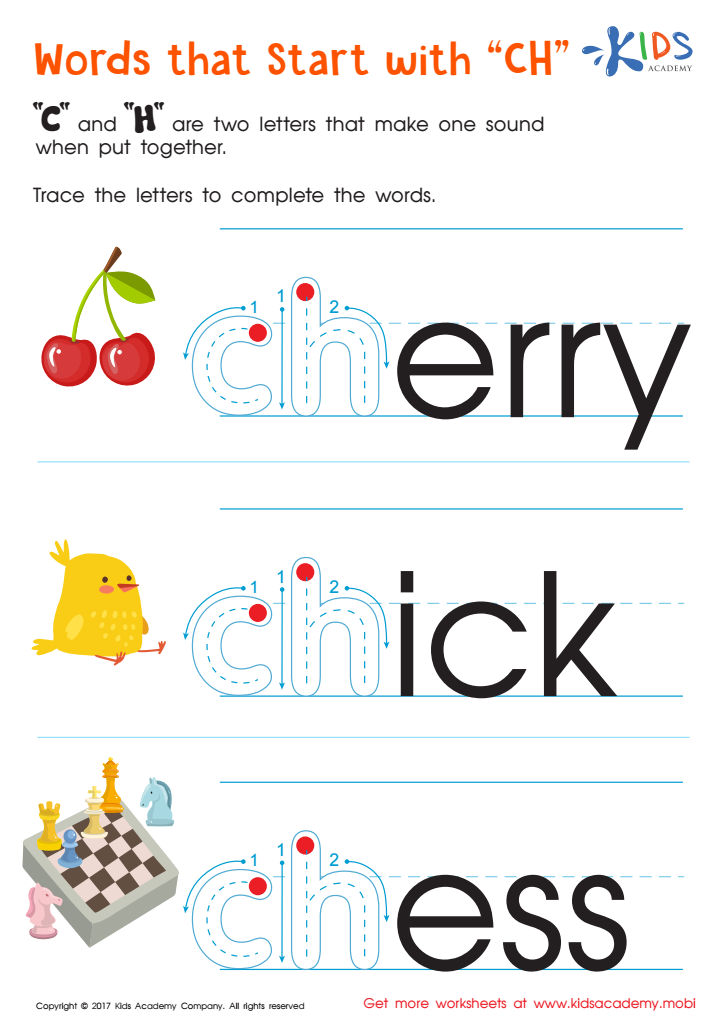

Words That Start with "ch" Spelling Worksheet
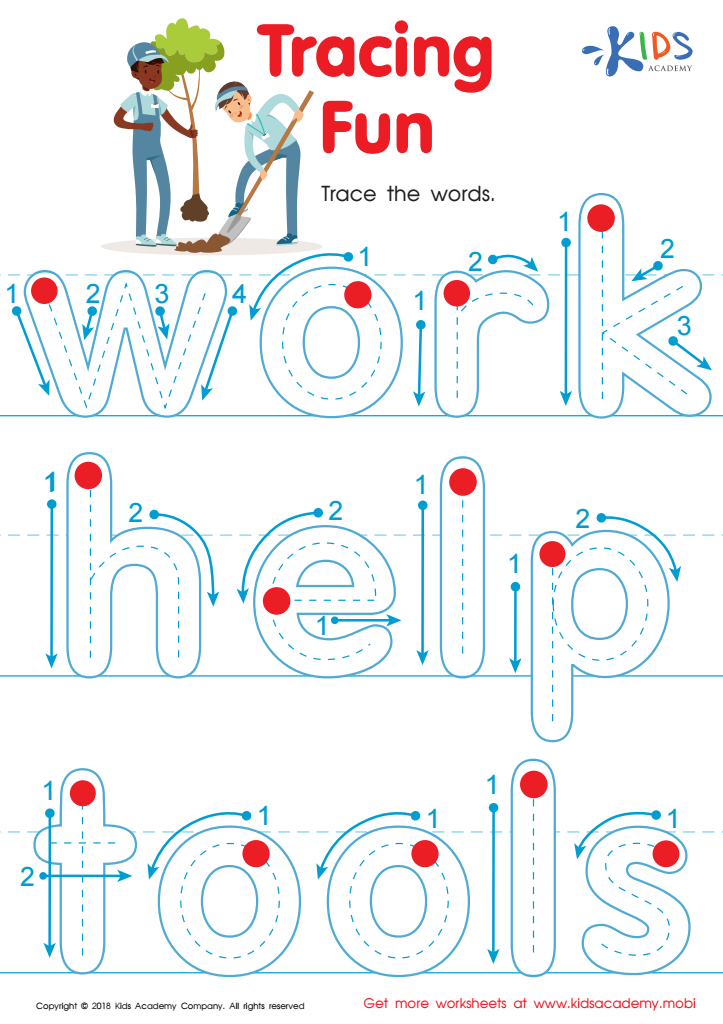

Tracing Fun Worksheet
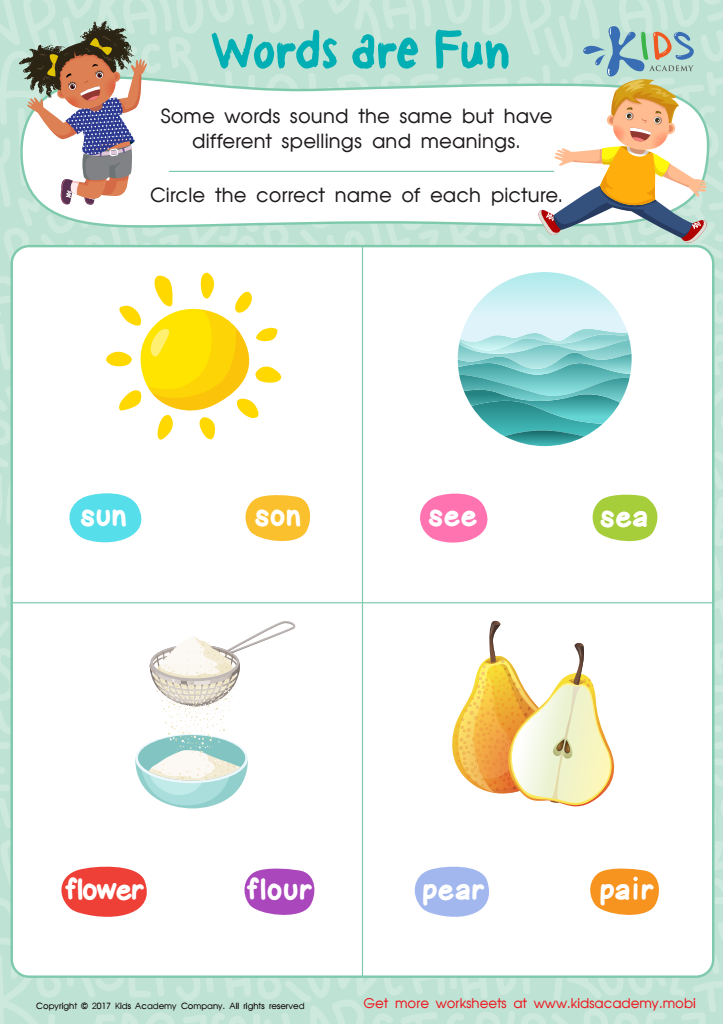

Words Are Fun Worksheet
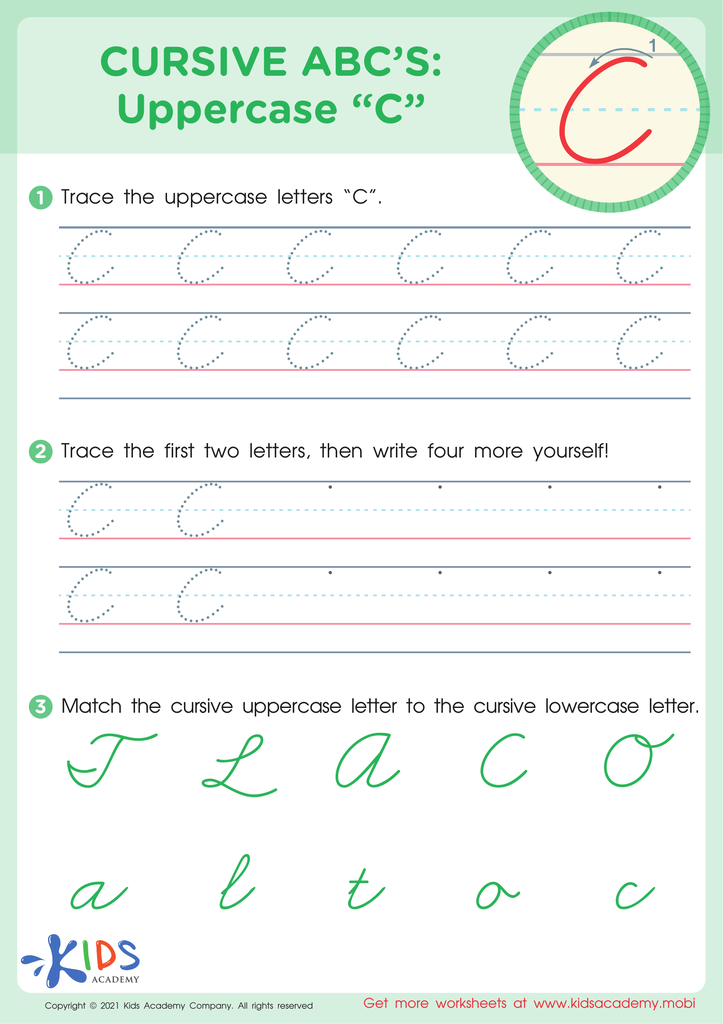

Cursive ABCs: Uppercase C
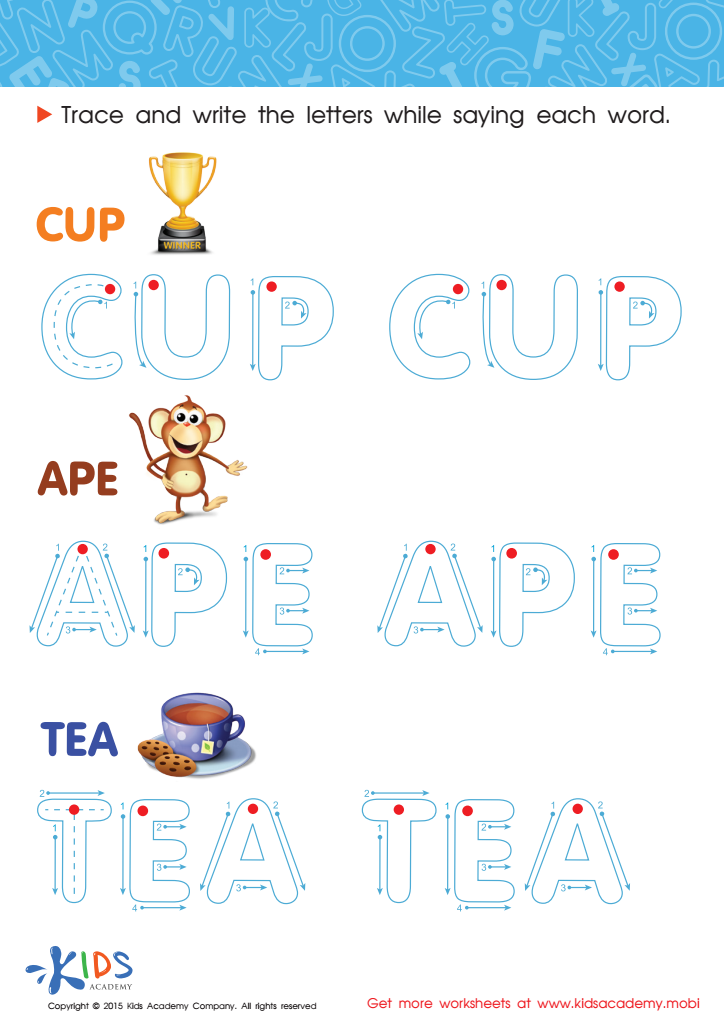

A Cup, an Ape and Tea Spelling Worksheet
Letter recognition and writing are foundational skills for children aged 5-9, making them essential for both parents and teachers to prioritize. Firstly, recognizing letters aids in developing phonemic awareness, which is critical for reading. As children identify letters and associate them with sounds, they begin to blend sounds into words, fostering their reading skills.
Moreover, writing letters reinforces fine motor skills. Children learn to control their hand movements and develop coordination, which are crucial for writing not just letters but also words and sentences later on. This practice builds confidence in their ability to express themselves through writing.
Furthermore, strong letter recognition and writing skills contribute to a child's academic success. Children who struggle with these skills may find it challenging to keep up in school, potentially leading to frustration and a lack of motivation.
Lastly, fostering a supportive learning environment at home and in the classroom encourages a love for learning. When parents and teachers actively engage in activities that involve recognizing and writing letters, they enhance children’s literacy development and bolster their enthusiasm for education, setting a strong foundation for future learning. Prioritizing these skills ensures children emerge as competent readers and writers, ready for the challenges of higher grades.
 Assign to My Students
Assign to My Students





















